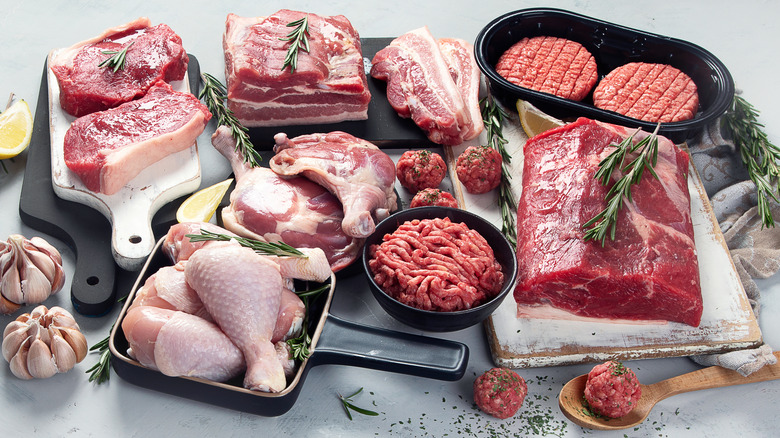How Much Protein Is Too Much? A Nutrition Expert Weighs In
Protein is vital to our body's everyday functioning. In fact, WebMD reports that our body contains well over 10,000 different types of protein which can be found anywhere from within our muscles to the strands of hair atop our heads. Protein is necessary not only for generating energy but also for cell repair and immune health. But how much protein is considered too much?
We posed this question to Sapna Bhalsod, Registered Dietitian at WellTheory (digital nutrition and lifestyle-based coaching solution for chronic conditions, like autoimmune disease) and member of the growing BIPOC community driving diversity in dietetics and nutrition. "Everybody is different[.] [F]or example, for a healthy individual at maintenance, 0.8-1 g/kg of protein is enough," she explains. "However, if you are trying to build muscle or have a chronic illness — like cancer or an autoimmune disease — that range can increase to 1-1.2g/kg or even higher!" Overall, however, if your protein intake exceeds your nutritional needs, Bhalsod explains that you're getting too much protein.
How too much protein affects the body
Bhalsod goes on to tell Health Digest the ways in which excess protein can impact the body. "Excessive amounts that your body isn't using will be stored as fat," she says. "Depending on sources of protein and genetic susceptibility, you could develop gout," Bhalsod states. "It can also increase LDL (low-density lipoprotein) cholesterol, sometimes referred to as 'bad' cholesterol, and the chances of developing hypertension." She adds that those with certain preexisting health conditions may also be negatively affected by increased protein intake. "Those with preexisting kidney disorders, like CKD (chronic kidney disease), should be particularly mindful of consuming excessive protein," Bhalsod cautions. "Kidneys help remove the waste from protein in your diet, but if that waste can't be removed efficiently, you'll undermine kidney function."
So how much protein should a person stick to daily? "For a healthy individual, the standard is 10-35% of daily caloric intake," Bhalsod states. "For someone working through the AIP (Autoimmune Protocol) diet, which aims to reduce inflammation caused by autoimmune diseases, it should be 20-30% of daily caloric intake." Concluding the interview, Bhalsod offers suggestions for how we can best ensure we're getting enough protein each day. "The best source of complete proteins that are bioavailable come from animal products. Shoot for 3-4 oz at each meal," she says.


